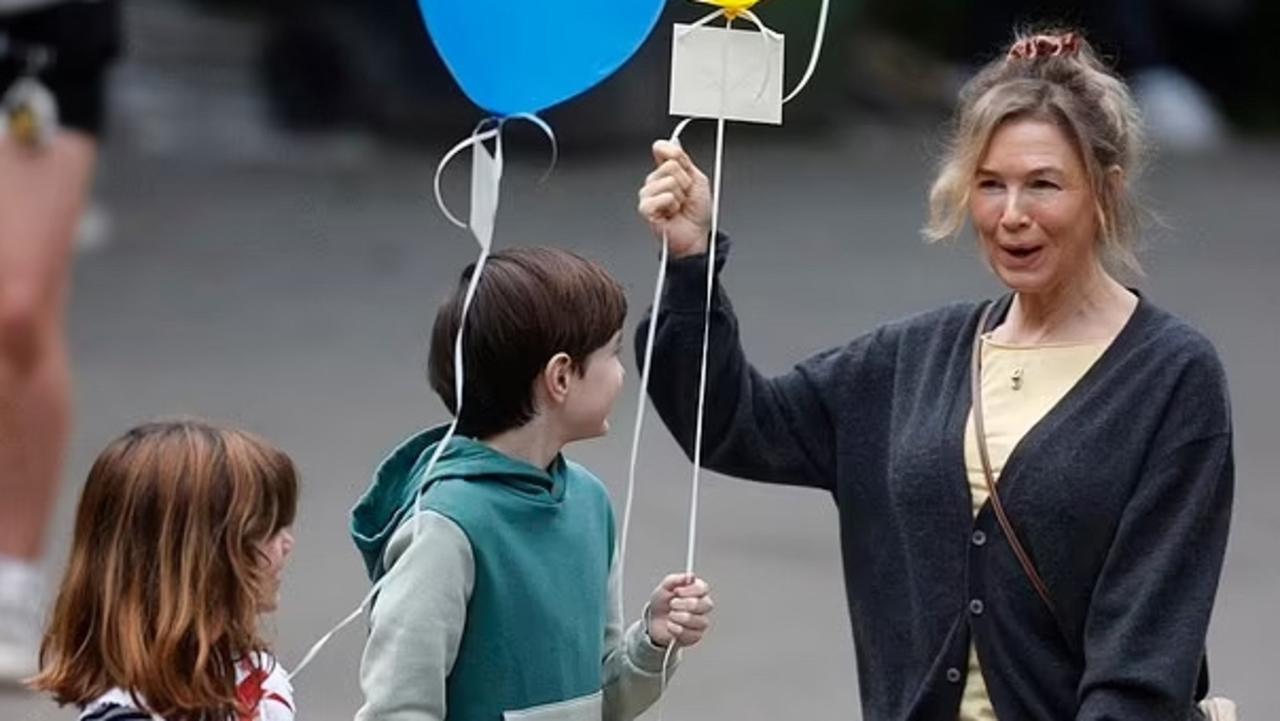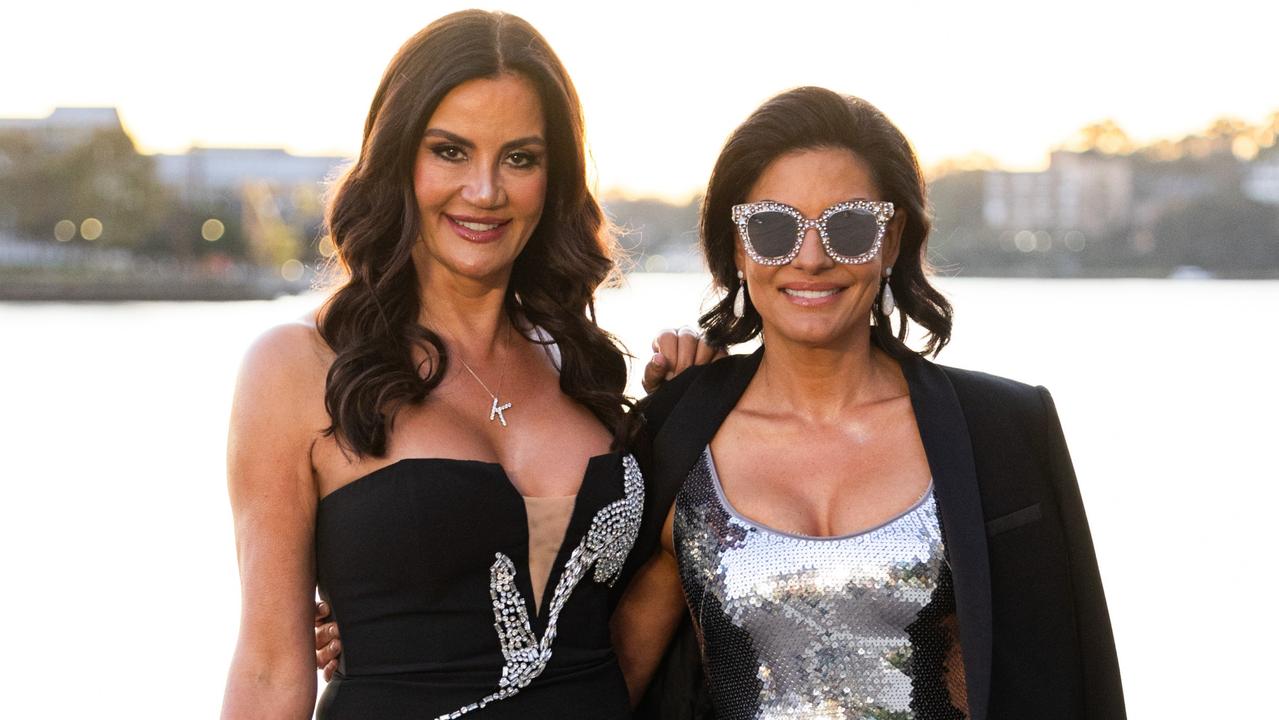Lincoln Younes seeking balance through connection, conversation and strong foundations
Lincoln Younes is a star on the rise but, for him, success isn’t fame. It’s connection, conversation, and starting with strong foundations.

Entertainment
Don't miss out on the headlines from Entertainment. Followed categories will be added to My News.
From the beaches of Summer Bay to the mean streets of Kings Cross, Lincoln Younes is about to be back on our screens – this time as a controversial morning TV host loosely based on the likes of our own Karl Stefanovic.
The 31-year-old actor will star opposite Asher Keddie in Binge drama Strife, based on Mia Freedman’s memoir, Work Life Balance – which is exactly what he strives for in his life, even though he’s never been busier. And that “noise” of a hectic schedule and social media saturation – or as he calls it, “the whirlpools you can get sucked into” – are another reason he’s determined to create work that prompts connection. True, proper conversation – something he says is a lost art.
Like a significantly growing number of Australians, Younes suffers anxiety, and has since he was a youngster. Exercise helped – and continues to – when he finds himself in a whirlpool.
“I grew up playing soccer, and I was such an active kid, and I had such a restless mind and whenever I moved my body, it would take me out of my mind, or would help me solve problems while I was moving,” he tells Insider overlooking famed Bondi Beach, the place he calls home.
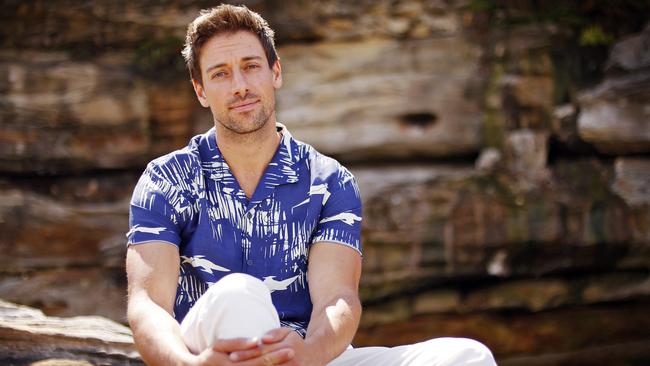
“So I think anytime I start getting, for lack of a better word, ‘weird’, I try and move my body and routines are really important that way.
“And, obviously, it has various positive elements to it, but the main one for me is it calms my mind.
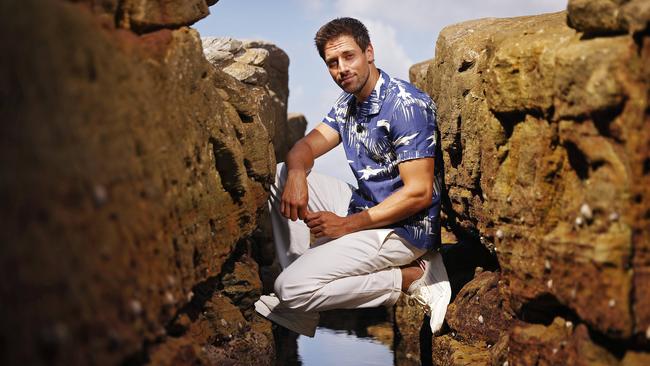
“I think ... I think in a lot of ways I have a disproportionate amount of energy. And if it’s not exerted physically, it goes to my mind and I get a lot of head noise, and then it’s just very hard to disseminate what matters.
“I always had that as a kid but, again, mum was very good at just putting me in a lot of different sports and activities and that helped a lot.
“It has a lot of wonderful benefits because I feel like I can achieve a lot of things and help a lot of people and have a lot of capacity, but if I’m not careful, I do burn out. So it’s about balance.”
A talented young soccer player, Younes and his brother were raised by a single mum who was a journalist and editor, so growing up in newspaper offices surrounded by the excitement and exploration of stories inspired him to tell them in his own way.
“I knew whatever I did, it needed to be steeped in kind of personality and humanity,” he says.
“I look at life in chapters, in a lot of ways.
“And this industry is such a unique beast and I think there was a lot of different avenues … as a kid, a teenager, I was definitely a person that was like, ‘I think I want to do this, I think I want to do this’ and I remember at my last school I held the record for most subject changes in a year. I changed so many times because I couldn’t decide – I wanted to do everything.

“The perfect marriage of that personality type and a career, I discovered, was acting. As an actor, I get to explore all facets of life in different ways at different times in my life, and inhabit that in an intense way for a time and then let it go.
“And unlike something like soccer, which is injury prone and body dependent and has an expiry date, acting just goes through evolutions – it doesn’t go through expirations in a lot of ways.
“So you enter a new age range, you enter a new physical capacity or mental capacity, and it just puts you into a different chapter of what you can play and what you should play – and
that really excited me because there’s a longevity to that, and there’s a malleability, and it’s constantly changing, which excites me.
“So I was like, I can do that for the rest of my life.
“And I want to do that for the rest of my life.”
With both Strife and Last King of the Cross where he plays John Ibrahim, both based on memoirs, the sharing of real stories has led Younes to create his own work about an issue close to his heart, anxiety.
“What inspires me at the moment is creating, so I have been developing a series which is now in the writer’s room stage and has a development deal, and hopefully will be created next year, and that’s been gestating for a while,” he says.
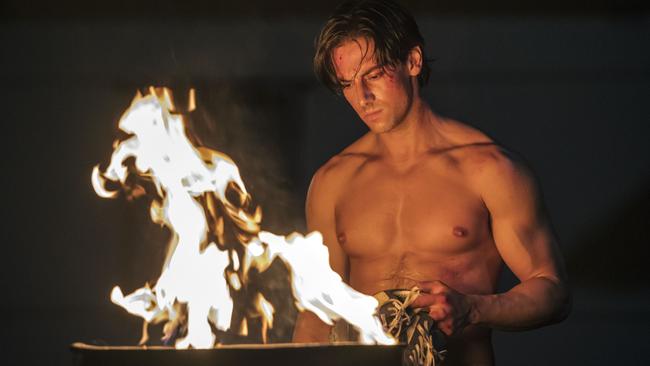
“It’s a dark comedy about the personifications of anxiety, that all coexist in a common space.
And, tonally, I do think that levity is the way into heavier topics.
“A lot of the time when you’re uncomfortable, the first reaction you jump to is laughter,
which is quite absurd, but it’s true – and I think they’re topics that sit quite deep in people, and in everybody, because it affects everyone. Doing it through the lens of something like comedy or any type of levity is the way in, and Strife does that in a lot of ways too.
“I’m inspired by someone like Asher, who is an incredible actress and a spokesperson for a lot of different things, but Strife was her first producing role – and she, in my mind, could have produced a long time ago, because she’s just achieved so much and experienced so much.”
He says social media, constant screen time and the need for instant gratification has led to a loss of the art of connection, which is the whole point of art in the first place.
“I think, lately, a new motivation that’s come through is the story,” he says.
“I think the art of conversation has really died off in the last few years. People don’t know how to talk because of things like social media, unfortunately. We’re used to instant gratification, and attention spans are lower and need for dopamine release is higher.
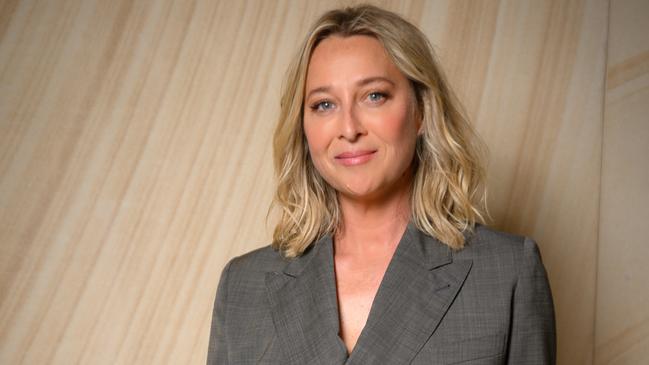
“And what that means is that, on my end, you spend a year longer on a project. It goes through all the different levels of creation – it’s released, it’s consumed, and people go, ‘it’s good, it’s bad, I saw it’ – and that tends to be the conversation.
“And that really has bothered me lately, because, a lot of the time, I don’t care about your stance on things, especially when it comes to art, but it’s the passion and the conversation behind it that’s important, and that’s where we actually learn about each other.
“So, for me, if there’s a story that’s vibrant and dynamic and is a bit of a taste breaker and a disruptive sensory experience, then it stops people from this kind of weird, apathetic conversation and actually forces people to connect.
“I think everything I’ve been looking at, and looking at what I’m creating at the moment as well, is something that hopefully is different to what people are used to.
“Because I think it’s really important that we don’t get into the same style of conversation because, otherwise, we would just all become the same type of person – and that’s not terribly interesting.
“That’s quite sad because art has always been the lens for humans to interact and learn and grow with each other.
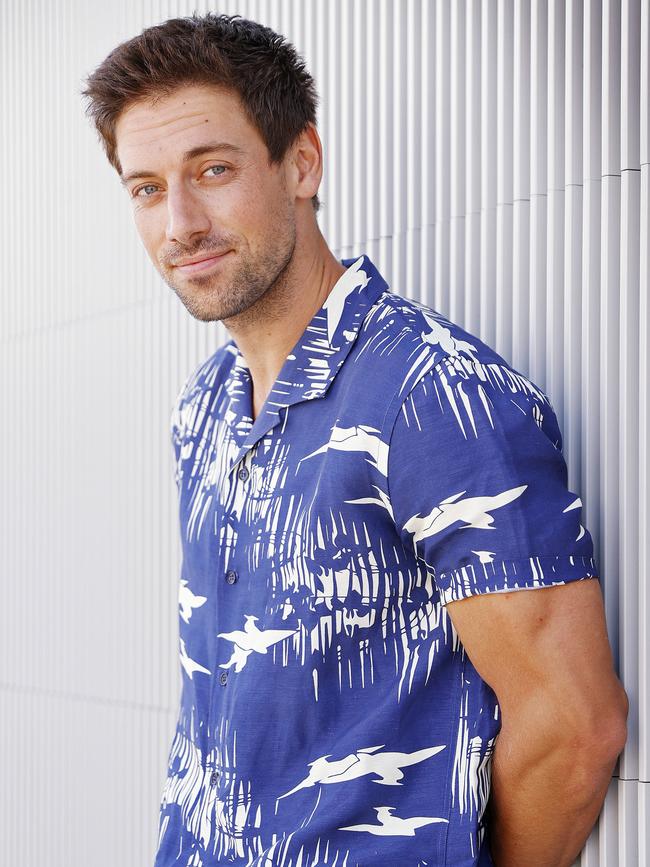
“I think we’re just so overstimulated in a lot of ways and we’re so desensitised in a lot of ways, that it’s really important that we return to stories that matter and have something unique about them.
“That’s why something like SAG and the strikes have been fighting for, with AI and whatnot – art shouldn’t be derivative, and it shouldn’t be algorithmic because I think that just pushes us one step away from connection, and art should be always about connection, whether it’s through conflict or through relatability.”
He says while red carpets and notoriety could often be a marker of success in the entertainment industry, fame or money was never his driver.
“Longevity has been,” he says.
“And I think longevity is one of the best markers of success in acting.
“That’s one of the things I always think about and aspire to, is to have a long, dynamic career, but something like the conversations we have here in the way we deal with certain topics, I think there’s a lot of opportunities and room to explore things in a way that we haven’t.
“So one of those facets is mental health, namely anxiety and personifications of that.
“And I think a lot of the time in Australia, we deal with heavy handed topics in a heavy handed way and it’s really difficult to access it and ingest it because it’s not quite palatable for us. We’ve experienced it enough in our day-to-day lives, so why would we want to expose ourselves to more of it?

“So I think there are certain topics like mental health where there is this dynamic shift that needs to happen with the conversations we have.
“And I just find it amazing whenever I see an actor or an actress transition into that kind of producing role as well, because I think there’s just so much for someone on a certain side of the camera to bring to the other side of camera, so you’re experiencing both, and you have that mutual respect for both and a hunger to learn.
“I think there’s a generation of creativity that I would like to see nurtured and I’d like to be one of the ones that hopefully inspires that, by action.
“So in the next couple of years, creating is something that I want to do alongside acting, because I think it all goes together and it all comes back to the central point of stories needing to be told in a way that redefines how to start a conversation and connection.
“In this industry, there’s so much exposure all the time, for all the different creatives – in good and bad ways – you see in really extreme ways. What can happen if you don’t find your foundations or you build your foundations on something that’s not structurally sound.
“In a lot of ways it’s even more obvious to creatives, why they need to not lean into certain things – you just have so many obvious accessible examples of paths that you maybe you don’t want to go down.”
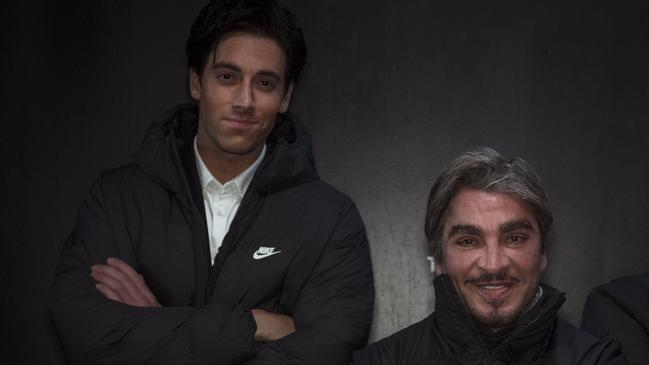
He also soon starts rehearsing Last King of the Cross season two, which he will shooting from January to April, but for any actor, the anxiety is always what’s coming next.
“For all the ‘Zen’ people try to be and achieve, actors are anxious animals, and for good reason – because your work is never predictable,” he says.
“There’s never security. Even though it feels like there’s security, there isn’t, and then you add in things like Covid or strikes or what’s happening in the world – it’s such a tight rope, and a lot of the time there’s no safety net.
“So that’s why it’s important being present and enjoying the times when things are going well, because you don’t know for certain if things will crash and burn or if they’ll do well, and you can never predict it, really.
“But I think what I realised is, I really love the doing, more than the relishing celebration of something. I just love the acting and creating and being on set with creatives and friends – that’s the enjoyment to me.
“But you’re always worried about your next job.
“That’s why I think the growth always happens when you’re not working, not when you’re working.
“The work is a gift and the gift comes from the self work in between.”
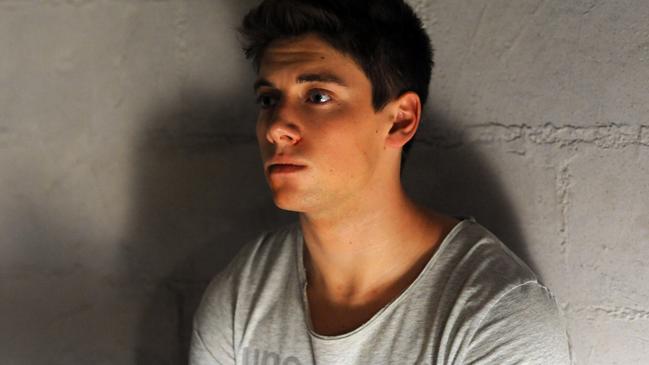
His work ethic was one demonstrated by his mum, someone he labels an “incredible human”.
“Looking at someone like her, who balanced a career and two boys in among all the other obstacles, and just try and have empathy and compassion a lot of the time, wherever possible – I think she always taught me that it’s better to be kind than to be right,” he says.
“And I think in the industry I’m in, all the markers of success – like fame, money, notoriety, events – all that stuff, can inherently pull you away from kindness and from connection if you don’t keep your solid founding.
“So for me, one grounding thing has always been trying to focus on the work, because if you just focus on the work, everything else comes.
“And, to be honest, it’s just experiencing all those different chapters and going ‘that doesn’t fulfil me, that doesn’t energise me’.
“I’d much rather jump in the water and cook dinner and chat over wine and then be out on a carpet, doing all the things which are part of the job – but it doesn’t have to be a part of you.
“I hope Mum’s proud of me, because I’m really proud of her.”
He says the balance, “that stopper” is so important but, when you’re in one of those whirlpools, it’s really difficult to take a step back and look at things.
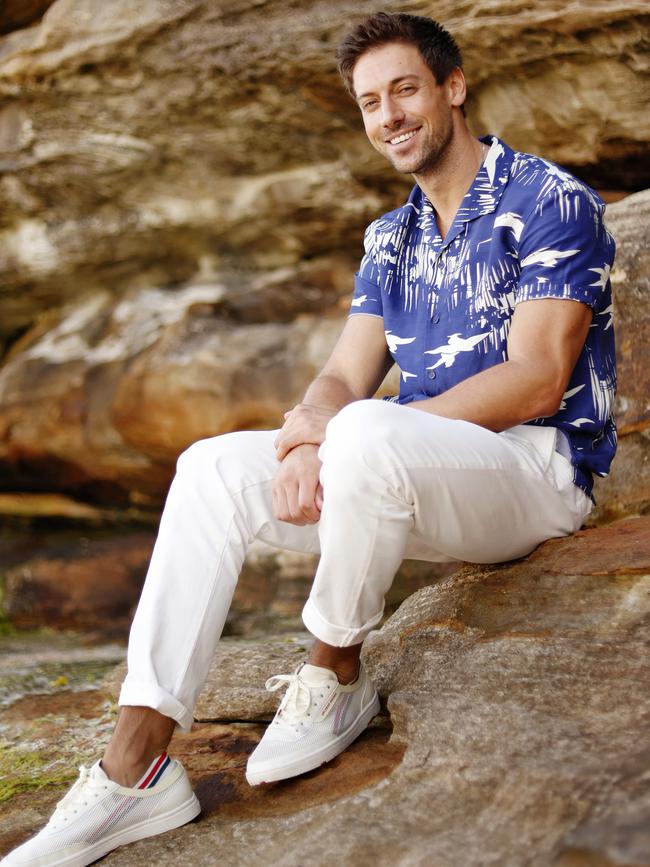
“It’s hard because there are all these whirlpools, and a lot of the time they’re not yours, but you’re in them,” he says.
“And until you get out of it, you don’t have perspective, you don’t have that balance or grounding.
“Because of things like smartphones and social media and constant stimulation, we can get into the habit of just existing in that, and then sleeping, and then existing in that and, at least for myself, you forget what matters.
“And I think any kind of art, or any kind of conversation that breaks you out of that, is important – and I think that’s what we should be investing time and money and creativity into.
“Which is why shows like Strife, and hopefully the one I’m creating, are important in this landscape at the moment.”
And while he does play the TV show morning host, and he interviews Keddie’s character Evelyn, Younes says he’s not Stefanovic – or anyone in particular – but he took great inspiration from the women bringing Freedman’s story to life.
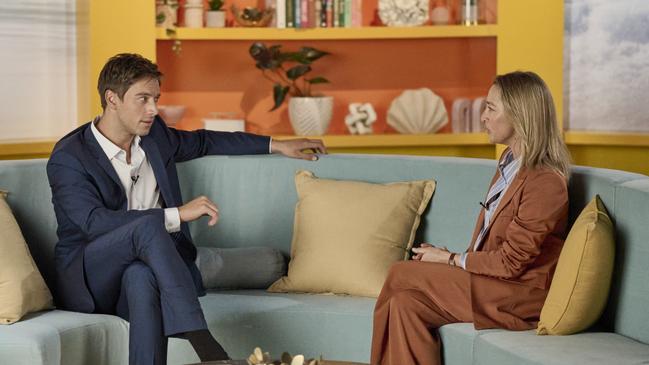
“I got to play opposite Asher, which was a lot of fun. I have admired her from afar, and we’ve met a few times, but to have those scenes and then go toe-to-toe with her was really good.
“And the whole creative team behind it, with Bruna Papandrea and Made Up Stories – I mean, everything they touch turns to gold and I think what they are creating in Australia is really groundbreaking,” he says.
“I think the drive behind female stories is really important, here and everywhere, but they are the leading force with that in Australia.
“Bruna is amazing – she’s so understated and brilliant. I don’t know when she finds time to sleep with the amount she’s doing, but she’s a really incredible human.”
Strife is all shot and in the can, and having the opportunity to play characters so unlike his own is the reason Younes got into acting in the first place.
“You get into acting for a number of reasons, but one of those reasons was getting to explore parts of life that you don’t normally inhabit, so it is almost harder to access things that are closer to the human you are,” he says.
“Whereas you always have to find truth in something that you understand or can relate with about a character – but when it’s something that is diametrically opposed to the person you identify as in the world, I think there’s just way more room for play, and there’s more capacity for risk.
“So for me, I get to do that, and then go back to being who I am.”
Strife is coming soon to Binge




